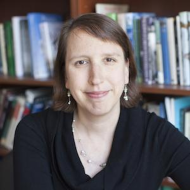
This past month I’ve slept terribly and it’s all because of the Big Bang. You see I’ve been lucky enough to collaborate with Brian Kruse over at the Astronomical Society of the Pacific on a teacher workshop about the Big Bang this week (and again at NSTA next month).
Why is NCSE interested in the Big Bang? Aren’t we evolution and climate change people? Well, in addition to being wildly interesting science, the Big Bang pops on our radar from time to time in the form of academic freedom acts—inappropriately named anti-science bills that attempt to bring science denial into the classroom under the guise of “critical thinking”.
So while the Big Bang isn’t our bread and butter here at NCSE, it’s safe to say that it is our occasional clotted cream. As a result, when I got the chance to partner with Brian I hopped on it. Not only did I want to learn more about the Big Bang, I wanted to learn about common misconceptions (or as Brian likes to call them, “preconceptions”) and sources of science denial.
But I have to admit, the more I learned about the Big Bang, the less I slept. I think that, as a biologist, I’m allowed to say the Big Bang is freaky. It breaks rules that I’d always thought couldn’t be broken and stretches your brain in weird ways. Thankfully Brian has been very patient with me, although many of his responses force me to rethink the very basics of my understanding of science. I’ve definitely fallen down the rabbit hole—and it is freaking me out. But it’s also made me think.
Certainly some of the challenges to the Big Bang come from a fundamental misunderstanding of the science. A really neat paper from Prather et al., dives into how prevalent and deep those misconceptions are. But then there are the other challenges that arrive when you start asking what the Big Bang means.
The Big Bang means confronting Big Questions. How did the universe start? How will it end? Who invented liquid soap and why? It’s the sort of questions that make you start thinking not just about time and space, but your own mortality, the mortality of the Earth, the mortality of the Universe! And that is scary. It’s keeping me up at night and I’m not afraid to say, it: I REALLY, REALLY don’t like the way this makes me feel. In fact I hate it, and as a result, I sort of hate the Big Bang.
But that’s not science’s fault. And this is a truth that we often shy away from: science is not there to make us feel good. Science is there to answer questions. And sometimes those answers suck. This is something I talk a lot about when talking about climate change. Climate change is bad news. We are in serious trouble and the longer we wait to do something about it, the worse it will get. Understanding that can lead to disillusionment, despondence and yes, people waking up in the middle of the night, terrified at what the future might hold.
So what's the answer? Teachers everywhere have known for quite some time that the answer is not more data, but rather dealing with the emotional and psychological pieces. We’ve noticed this too at NCSE. Although data is powerful, most often the conflicts teachers experience have nothing to do with evidence. Lucky for me, I have an awesome teacher in Brian whose willing to coach me through both the science and my despondence regarding the Big Bang. We'd like to make sure that NCSE is helping teachers everywhere do the same.
Image by Tom Hall via Flickr

